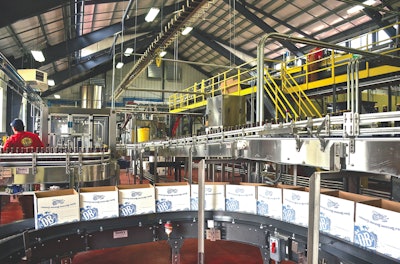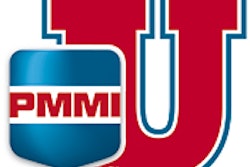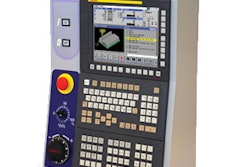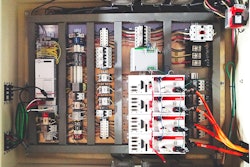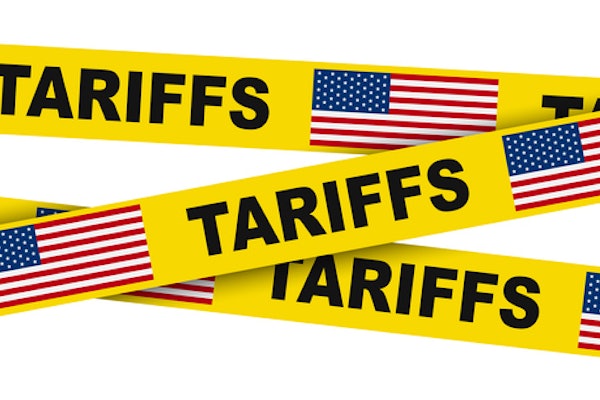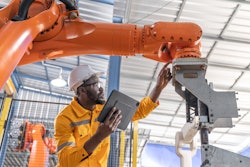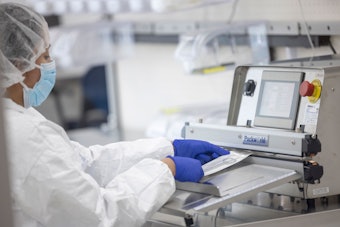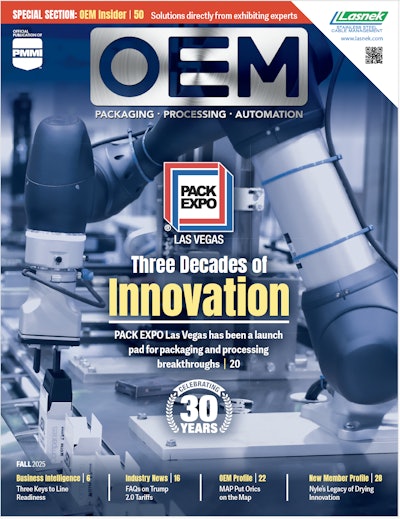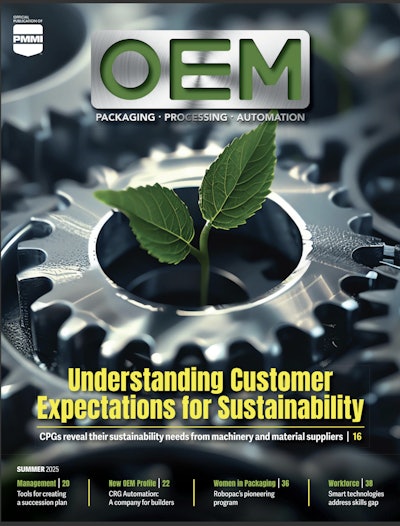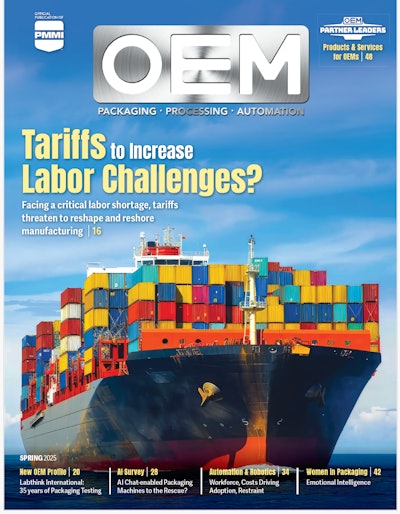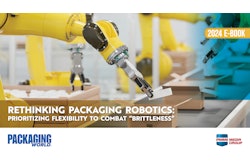Founded as a brewpub in 2008, Devils Backbone started small. But growth and demand eventually convinced management to add a production-based facility with bottling and canning lines. The 15,000-sq.-ft. facility began humbly in 2012 as a 30-barrel brewhouse. A new filler hinted at the beginnings of automation and OEM collaboration, but bottles were hand depalletized, and cases were hand erected and hand packed.
But in 2014, while planning a 2015 capacity jump from a 30-barrel to a 120-barrel brewhouse, decision makers realized they’d need a corresponding leap in packaging automation, and a packaging hall of their own. During this process, Josh West, director of operations, put a lot of trust in local and regional companies in the East and North East to accomplish this. He wanted to work with people who would be relatively nearby, in the same time zone, and available to help automate and grow.
Now, in 2017, the company is growing again, moving all packaging operations into yet another new building. Some equipment will survive the move, and other equipment will be replaced or upgraded in anticipation of even greater line speeds down the road. But having seen the value of staying with regional equipment partners, West will be largely sticking with the familiar suppliers that got Devils Backbone to where it is today.
“It’s nice for me to be able to pick up the phone and call, get the same person on the phone, and be able to talk to them because they already know our situation. We have been with all of our vendors for a couple years now, and we’ve been through hiccups and have grown together. We value staying local so someone is in the same time zone, or can be here on a day’s notice,” West says. “With one of our suppliers, we’re getting their tray packer installed in the new building. I could have shopped around for different tray packers, but it would have been a completely different type of machine than what we already have. At least I know that our current supplier is going to be using some of the same hardware and technology that they use in their other machinery.”
But that’s not to say that OEMs should rest on their laurels and trust long-standing relationships to retain customers. West explains one situation in which he was reluctant to purchase a newer piece of equipment from an existing supplier due to issues with the speed of service.
“After a while, we had to have an intervention—but they surprised us with how well they responded. They impressed us with their ability to get us parts, service, and educate and train us on the equipment,” West says. “This service element was something we missed when the machine was initially installed. Their ability to provide that type of service on command, once we made them aware of the problem, turned things around for me. We ended up going with another piece of equipment from them. Only six months before the intervention, I was shopping around for different suppliers.”
Another obstacle West has faced in his quest for new equipment is being put on the back burner by some OEMs that may have bigger bottlers—with bigger installations—in their sights.
“If I have a question about a technical spec or something on a piece of equipment, at least send me the email back saying, ‘Hey, I’m working on it. I got this, and I’ll have an answer for you by Friday, hopefully,’” West says. “Instead, I’ll send an email and have no response for maybe a week or two on something that’s seemingly simple. If there are other options out there, I’m going to look around a little harder than I would normally if you had been responsive. When I set up an appointment with an OEM, I look at responsiveness of the sales reps and their customer service as the judge of how our relationship is going to go in the future.”
Speed of customer service is a top priority for West, and he relies on his OEM partners to be versatile and willing to accommodate the brewery’s equipment needs at a moment’s notice.
“If the machine is down, we’ll try our tricks first. After four hours of working on the same thing, that’s when we call our supplier to pick their brain,” West says. “Nine times out of 10, they’re able to point us to a device or a switch that’s not acting correctly and give us a work-around-the-band aid fix, until we can get the actual fix performed on the piece of equipment.”
OEM opportunity in sampler packs
Sampler packs of beers is keeping West up at night. To align the company for success with consumer trends, West is currently searching for a solution to automate the process of making a sampler pack of different beers, which is becoming an increasingly popular demand from customers.
“The craft industry is a game of figuring out what the customer wants. With our setup, we could do everything from 12 pack bottles, six pack bottles, to 24 loose,” West says. “On our can line, we even do a 24 pack 16-oz. format, just to get the 16-oz. in a sellable unit to our wholesalers. Right now, we’re hand mixing bottles in our sampler packs. We have a third-party company that we’ll send four different types of beers to, and they’ll make a mixed pack out of them. As we grow and as our volume and the demand for these sample packs increases, that’s going to become a challenge to figure out an efficient and timely way to automate these mixed packs.”
To achieve this, West has been pondering the idea of a drop packer that unpacks, repacks, and shuffles the different beers to create mixed sampler packs.
“You take several different types of beer and put them all together on one drop packer that would drop in the four different types or however many varieties of beer into one case,” he says. “The trouble is figuring out whether you just run four different types of beers, store it, and then bring all that stuff out of storage and then run it through this packer, or is there a machine out there that can unpack the cases and then re-pack them for you?”
OEMs can also assist bottlers and craft brewers by learning which industry trends are driving bottlers to innovate and automate, West says.
